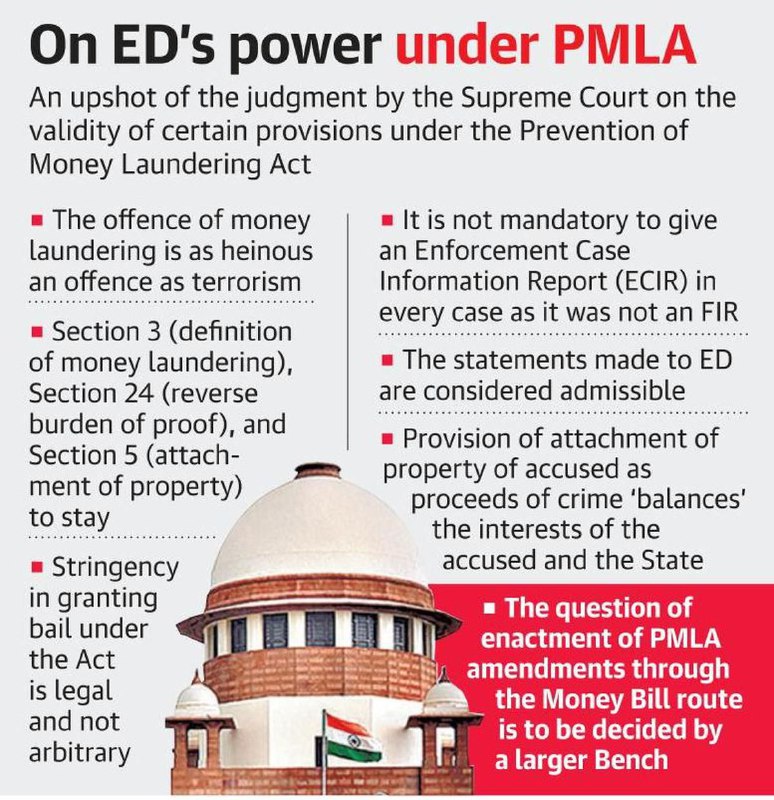
OPINION: AUTHORITIES WHO MISCONSTRUE AUTHORITY
MISCONSTRUE AUTHORITY The Prevention of Money Laundering Act (PMLA) 2002 vested a cadre of officers under the Enforcement Directorate with powers to prevent money laundering, attach proceeds of crime, and confiscate assets.
OPINION: AUTHORITIES WHO MISCONSTRUE AUTHORITY
The Prevention of Money Laundering Act (PMLA) 2002 vested a cadre of officers under the Enforcement Directorate with powers to prevent money laundering, attach proceeds of crime, and confiscate assets.
According to section 3 of the PMLA, the act of protecting or claiming proceeds of crime to be untainted property constitutes the offence of money laundering. A number of offences under the IPC and other statutes have been included under the schedule as well.
It is crucial to note that the investigation and prosecution of the offence is done typically by the CBI or the State police.
Section 50 of the Act provides powers of a civil court to the ED authorities for summoning persons suspected of money laundering and recording statements. However, the Supreme Court held that ED authorities are not police officers.
There are many differences between the ED authorities and police.
While the police are required to file an FIR for a cognisable offence before conducting an investigation, ED authorities begin with search procedures and undertake investigation for gathering materials by issuing summons.
Any statement by an accused to the police is inadmissible as evidence in court, whereas a statement made to an ED authority is admissible.
A copy of the FIR is accessible to the accused, whereas the Enforcement Case Information Report is seldom available.
The section 19 of the Act permits superior ED authorities to arrest any person whom they have "reason to believe" is guilty of money laundering based on the material in their possession. However, the use of the phrase "reason to believe" indicates that the authorities must satisfy themselves of the need for arrest and that it must pass the reasonableness test.
With agencies like the ED and CBI being the new fad in the current political discourse, understanding their working becomes important from an administrative perspective.
